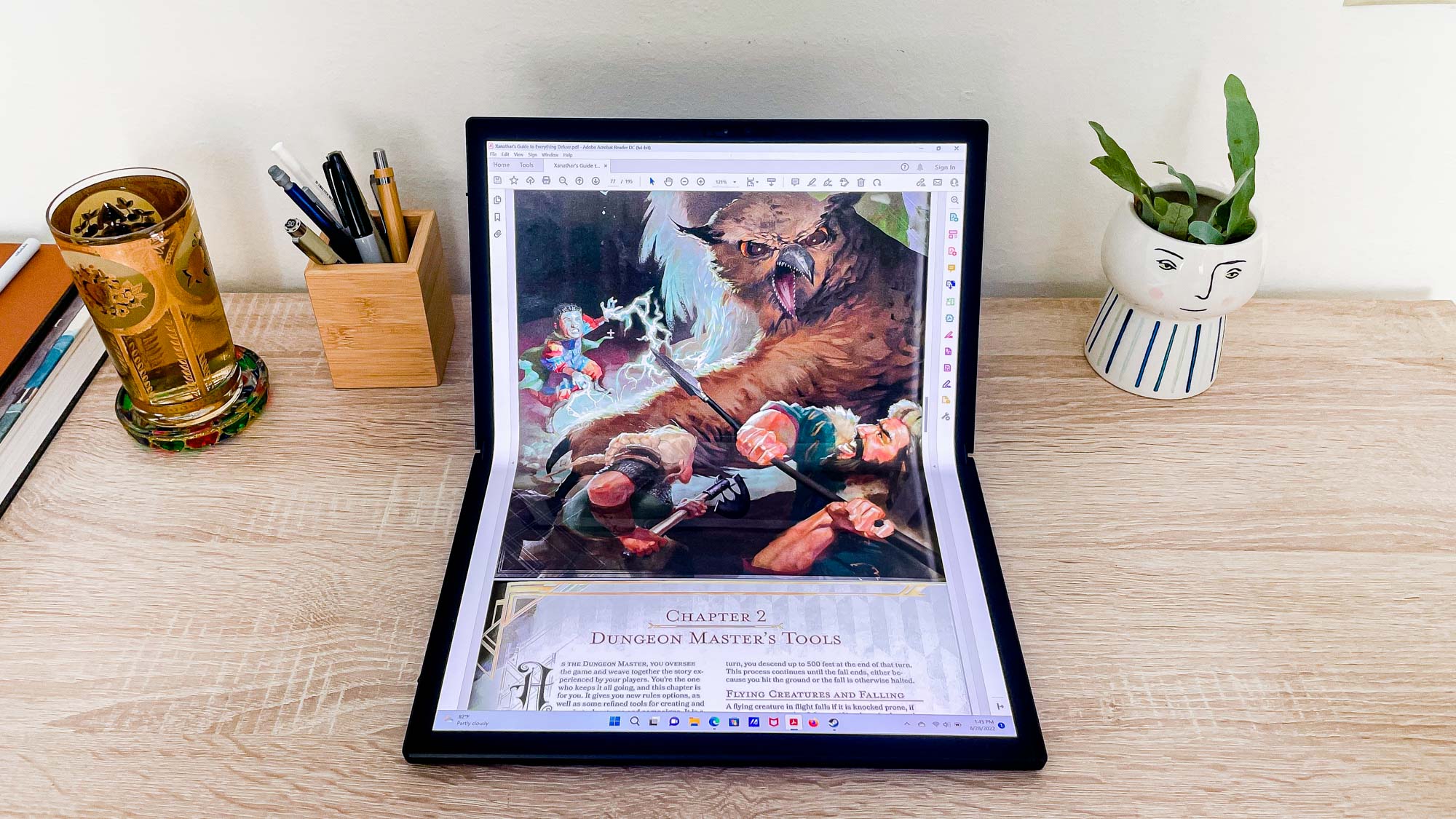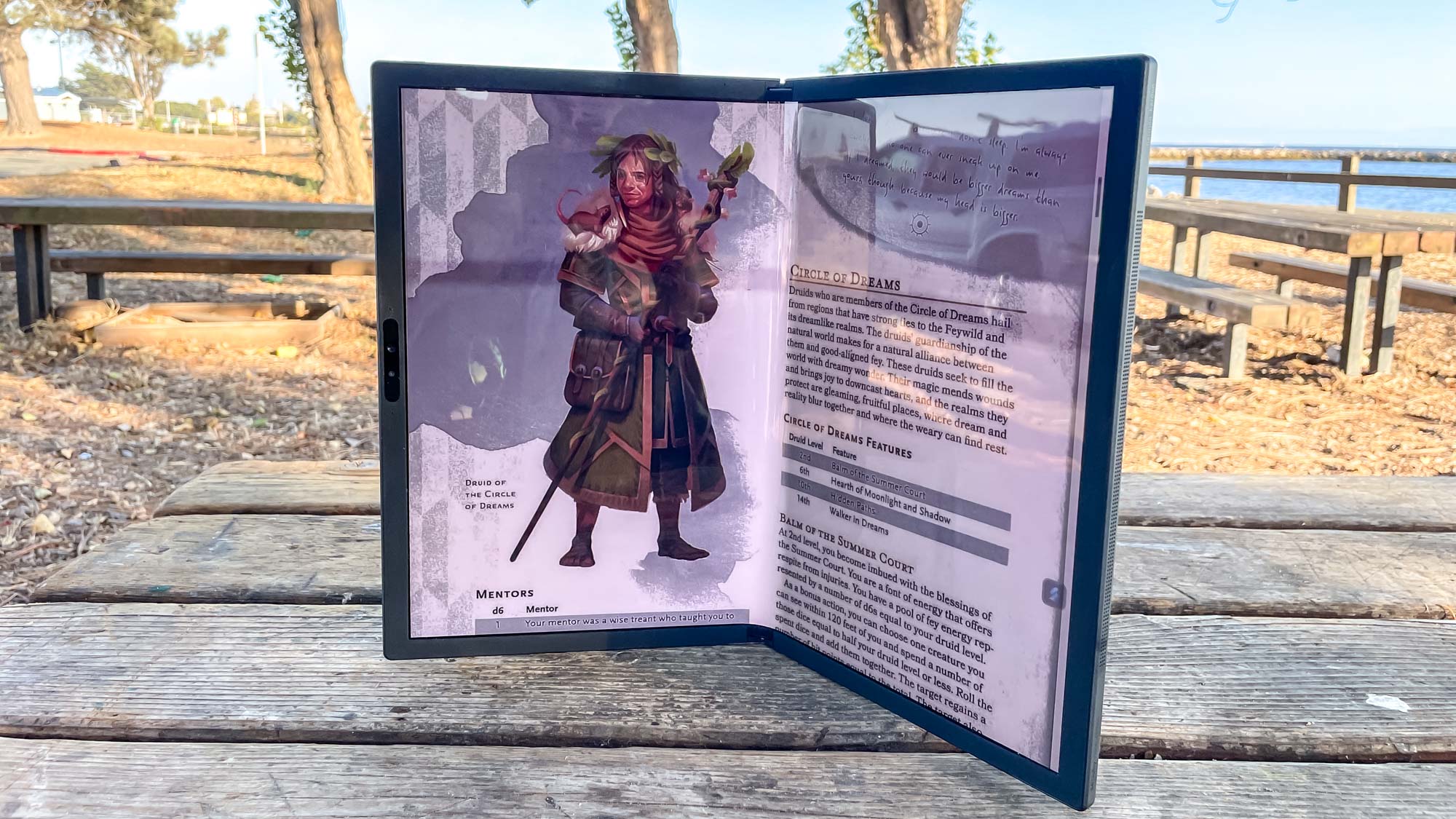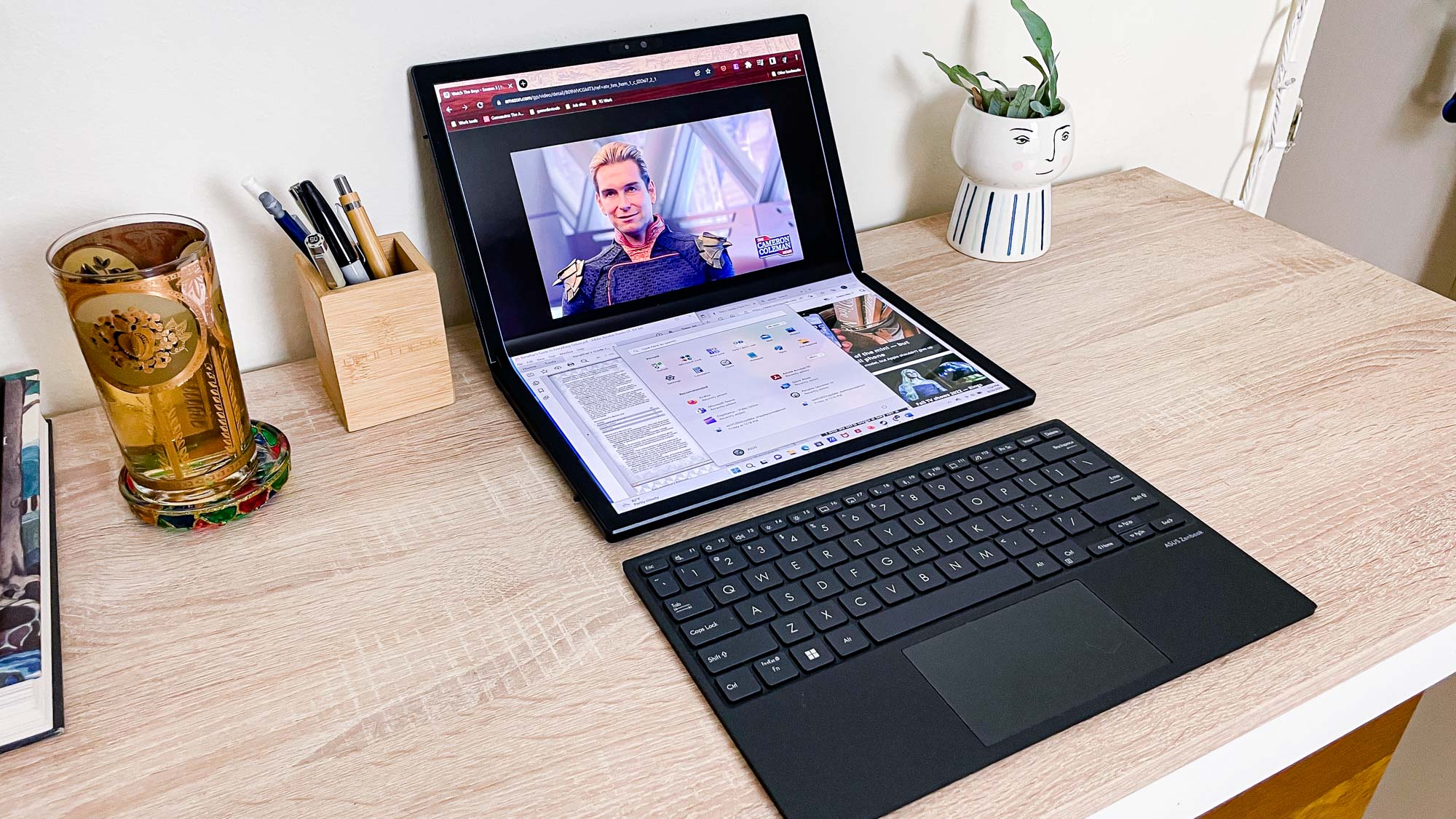
I've been reviewing laptops for years here at Tom's Guide, and a few of them share a unique feature that's still pretty rare in portable PCs: They fold.
Foldable laptops aren't quite as popular or as widespread yet as the best foldable phones, but I've slowly seen them grow from wacky proof-of-concept devices to a clearly defined product category. A few years ago the only foldable PCs you could find were prototypes being demoed at CES, but now you can go online and buy foldable laptops from major vendors like Asus, Lenovo, HP and more.
We've reviewed a fair number of them here at Tom's Guide, from the beautiful Asus Zenbook 17 OLED to the attempted triple threat that is the HP Spectre Fold. And while they're getting better every year, augmenting already impressive folding OLED displays with better components that get closer to delivering a full PC experience in a foldable, I have a hard time recommending them over most laptops.
There's a hidden strength to these fancy foldable PCs that you ought to know about if you're on the fence about buying one: They're really nice for tabletop role-playing games!"
That's because foldable laptops are still generally too expensive and too handicapped by their design to be worth buying as a daily driver for most people. They're neat, and more capable than you'd think, but unless you really need a heavy Windows 11 tablet that doubles as a laptop and folds in half, you can find one that better meets your needs for the same price or less from among the best laptops and best 2-in-1 laptops on the market.
But after using a few at home and on the go, I've started to feel there's a hidden strength to these fancy foldable PCs that you ought to know about if you're on the fence about buying one: They're really nice for tabletop role-playing games!

I'm talking of course about games like Dungeons & Dragons, group activities in which you and your pals take turns rolling dice and describing what happens to worlds and characters you imagine. These games typically ask you to know some rules and plan some things in advance, and if you're the Dungeon Master you know you can spend hours planning before a game session.
These days a lot of that planning, prepwork and play can happen on a laptop, and I've found that foldable laptops are uniquely well-suited for this kind of work. I often use a laptop or tablet to help me research details and keep notes while I'm planning a D&D session, for example, and I found a foldable like the Asus Zenbook 17 OLED is actually slightly more useful for this work than a traditional clamshell or even a 2-in-1 laptop.
This is partly because a foldable laptop can be picked up and held like a book, so when you're flipping through digital copies of your various reference books it feels very natural to pick up the laptop, fold it in half like a book and cradle it in your lap. Now, these laptops typically weigh 4-5 pounds and are made of metal, so they're not very comfortable to hold up in front of your eyes for long periods. But if you can cradle one on your chest or stomach while you're sitting on the couch, I've found foldable laptops to be surprisingly comfortable reading devices.

And when you're doing campaign prep work on the go, I like how foldable laptops offer you the utility of a dual-screen PC setup in one device. Since they're designed as a single foldable screen that (usually) comes with a separate Bluetooth keyboard, you can prop the laptop up so each half of the display is a separate workspace in Windows 11 (many foldables come with stands specifically designed to support the laptop in this "dual-screen" setup, and if you don't have one you can always use a book or other prop), then work across two screens in one device.
I often find myself using foldables this way since I like to have a reference document or video up while I'm preparing for D&D, and it's the kind of convenient functionality that most laptops can't easily replicate.
Only foldables or weird dual-screen laptop hybrids like the Asus ZenBook Duo 14 can offer this value, and while I don't think it matters enough to most people to be worth the (still too high) price of most foldables, it's a unique value that I only realized because of the time I've spent these past few years using and reviewing these devices.
So while I still feel like foldable PCs are primarily the domain of executives and rich folks who don't paying a lot for underpowered folding laptops that look cool, I have to say they also offer unique functionality I can't find anywhere else. I just wish they were a bit more capable and less expensive.

.png?w=600)





